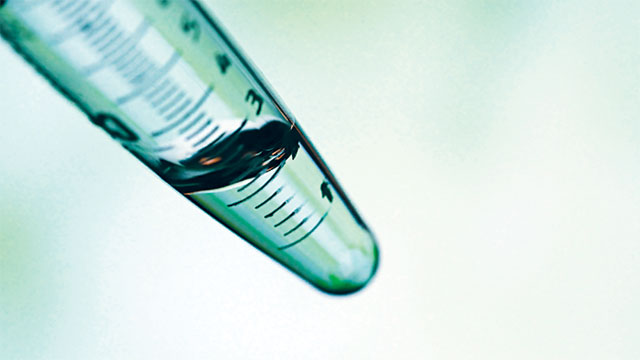
Regularly calibrating scientific instruments sets the stage for high-quality experiments by ensuring accurate and precise measurements. Proper calibration is essential for commonly used equipment such as freezers, pipettes, and balances as well as more sophisticated instruments such as spectrophotometers. It is important to know how frequently to calibrate your instruments, and whether it can be completed by lab personnel or it requires a calibration service provider. Understanding your specific needs and keeping a few factors in mind when comparing service providers can ensure the most appropriate, costeffective solution for your lab.
There are several ways to determine when to calibrate your instruments. Perhaps the most obvious sign calibration is necessary is that measured values are suspect. Another approach is to calibrate prior to beginning an experiment in order to have confidence in measurements for the duration of the study. It may also be valuable to calibrate following the conclusion of the experiment to confirm the accuracy and precision of the values obtained. One may also choose to refer to the manufacturer’s guidelines to determine an appropriate schedule.
Some instruments can easily be calibrated by lab personnel, while others require additional equipment and expertise. In these instances, support and service from the manufacturer or a third-party service provider are necessary to ensure proper calibration. There are several factors to consider when hiring a calibration service provider.
Individual equipment manufacturers may offer service agreements for their instruments. This guarantees that a highly trained technician will provide service; however, it may come at a higher cost than other options. Multiservice vendors may offer a more cost-effective alternative and can provide service for a wide variety of manufacturers.
Related Article: Just How Important Is Calibration?
Working with an accredited service provider can provide greater confidence in results. “ISO/IEC 17025 General requirements for the competence of testing and calibration laboratories” is considered the standard accreditation for calibration service providers. It specifies general requirements that must be met during calibration and testing procedures to ensure consistent, valid results.
The downtime associated with calibration is also an important consideration for busy labs. Some services are able to send technicians to the lab for on-site calibration and service, and others perform testing in off-site labs. Asking for an estimated time frame to complete testing and calibration and scheduling service outside busy times in the lab can reduce the risk of project delays. Further, for off-site service, consider a provider that offers equipment pickup and delivery options.
When comparing costs, be sure to note what is included in the service fee. Is shipping or pickup and delivery included? Is there an additional fee for a certificate of calibration? In cases when the instrument requires adjustments, are they included, or is there an additional fee? Each lab will have specific, unique needs for instrument calibration. When choosing a service provider, consider the scope of service, accreditation, time, and cost.
Investing time in conducting some preliminary research can ensure properly functioning equipment and prevent unnecessary delays and expenses during experiments.











